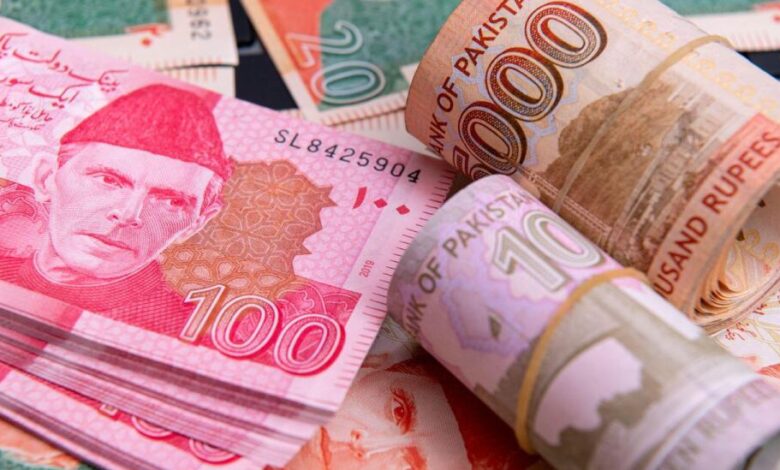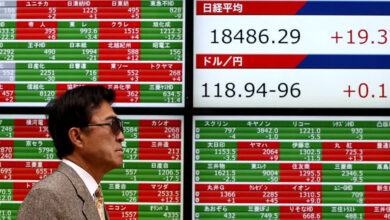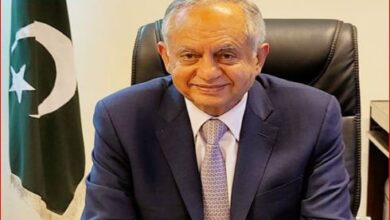The Pakistani rupee dropped for the 12th day in a row.

KARACHI: The Pakistani rupee fell for the 12th working day in a row on Monday, hitting a new all-time low of Rs200.93 against the US dollar as political and economic unrest in the country grew.
There are rumors that the IMF (International Monetary Fund) loan program talks in Doha may be put off for a few days or weeks. This could cause the local currency to drop again.
On Monday, the State Bank of Pakistan (SBP) raised the benchmark interest rate by 150 basis points to 13.75 percent. This was done to make the currency stronger against the U.S. dollar.
According to data from the central bank, the Pakistani rupee fell 0.39 percent against the dollar during the Doha talks, from Rs200.14 on Friday to Rs200.93 on Monday.
With this latest decline, the local currency’s value has fallen by 8.21 percent, or Rs 15.24, in the last 12 business days.
It hasn’t gotten better because the country’s foreign exchange reserves are running out quickly because more money is being spent on imports and foreign loans.
The country’s foreign exchange reserves have dropped to a disastrously low level of just $10,2 billion, which is just enough to cover imports for six weeks. Since January 2022, the reserves have dropped quickly, and there is now only $10.2 billion left.
Islamabad has until June to pay back $4.5 billion in foreign debt. However, the country’s import bills are likely to stay high in May because the government has decided to buy expensive liquefied natural gas (LNG) to fix the country’s energy problem.
Due to low reserves and a likely small delay in the IMF’s $6 billion loan program, there is a greater chance that international payments will fail.
The IMF had made it a condition of renewing its multibillion-dollar loan program that petroleum and energy subsidies had to go away. So that there wouldn’t be a new wave of high inflation, the PML-N coalition government decided not to pass on the rise in international oil prices to end customers.
Experts say that if the government decides to raise energy prices, inflation will go up by 15% or more.
Market talk says that a technocrat-led government will be put in place in the center to make hard economic decisions like cutting energy subsidies and bringing back the IMF loan program since Prime Minister Shehbaz Sharif has had trouble getting his allies to agree on anything.
If the IMF program was brought back, it would help the rupee recover some of its value against the dollar.





